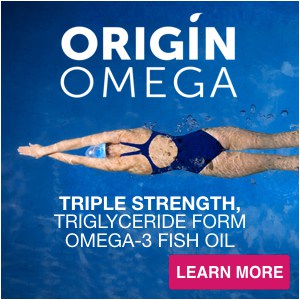Spina bifida is a harmless sounding name for a very harmful birth defect. During embryological development, your brain and spine form from a neural tube. This tube unfolds to become the spinal column, then fuses up the middle, like zipping up a jacket. But what if your spinal column doesn’t fully fuse? As you may imagine, what is normally safely inside the spinal column is now exposed- severe brain and spinal cord damage can result. There are degrees of spina bifida, from the surgically correctable to fatal cases, but the bottom line is that an exposed spinal cord is to be avoided at all costs.
Enter vitamin B9, or folate– which you may know of as folic acid. Research has shown that mothers with a folate deficiency are more likely to have children with neural tube defects, including spina bifida. Today, a standard prenatal multivitamin contains 400 micrograms of folic acid so that women who are capable of becoming pregnant are ready for those early stages of development when the brain and spinal cord are starting to form. Beyond your needs during development, folate supports heart and bone health, mental well-being, skin and gut health, and more! Read on to learn more about the discovery of a vitamin B9, why it is such a critical nutrient for your health after development, how you can fill up with folate in food, dial down daily depletion, and supplement safely.
What is Folate?
Like other B vitamins, vitamin B9 was discovered in the first half of the 20th century. In 1931, Lucy Wills first realized its benefits when she was able to cure anemic pregnant women with yeast and liver extracts. A decade later, researchers isolated the responsible vitamin from spinach leaves, naming the compound “folate” after “folium,” which means “leaf” in Latin.
As early as 1965, researchers hypothesized that there was a relationship between neural tube defects and signs of folate deficiency. Further studies clarified the potential connection, driving the British Medical Research Council to clinically test folic acid supplementation in the pregnant population. They found a 70% reduction in recurrence for women who had a previous pregnancy affected by neural tube defects. A follow up study in Hungary used a smaller dose of folic acid and found 100% reduction in recurrence. Those are astounding numbers. By 1991, the Centers for Disease Control and Prevention recommended that women with this unfortunate problem in a past pregnancy take folic acid. In 1992 the US Public Health Service followed suit, recommending 400 micrograms of folic acid daily for all women of childbearing age. Prevention is powerful in the United States as roughly half of births here are unplanned, and having folate on board in the first few weeks is critical for a developing nervous system.[1]
About 60% of Americans eat sufficient vitamin B9 in their diets, meaning almost half of us do not meet our requirements of this critical nutrient![2] Folate is a water-soluble vitamin and must be supplied daily in your diet because your body does not store substantial amounts. As such, some may choose to supplement the RDI (recommended dietary intake) to avoid potential deficiency. Supplemental vitamin B9 has long been supplied as folic acid, but our understanding of how our bodies manipulate and utilize folate has evolved. We recommend the most beneficial form of folate- an activated form known as 5-methyltetrahydrofolate, or 5-MTHF (sometimes called folinic acid). For those with certain genetic challenges, this active form of folate may be particularly beneficial. While there are no known toxicities for folic acid, those who cannot easily convert folic acid into an active form of folate may not tolerate folic acid supplementation well. Large doses of folic acid can also mask a B12 deficiency, which risks nerve damage. The upper limit for vitamin B9 supplementation is currently set at 1000 micrograms per day, more than twice the recommended intake level that we provide in nutreince. In particular, some may choose to supplement because they follow diets that restrict folate-rich foods or are associated with poor folate absorption, such as those on vegetarian, vegan, grain-free, gluten-free, and low-carbohydrate diets.[3]
The Many Functions of Folate
Folate is too important to miss out on! Here are some of its brain, bone, and heart supportive functions:
- Nourishes a New Nervous System. As mentioned above, folic acid and folate supplementation are very important for nervous system development and folate deficiency can have a dramatic impact on infant mortality. Beyond this direct link to neural tube development, folate helps you make every new cell- a critical role in all of embryological development.
- Supports Skin and Tissue Turnover. Folate supports DNA replication and therefore nourishes cell division.[4] Quickly dividing cells, like the skin that lines your body, gut, and urinary tract, are particularly folate-dependent. Folate also supports methylation reactions that help you make choline and subsequently phosphatidylcholine, which is important for the health of every cell membrane in your body- including skin tissues.
- Metabolic Maestro. Folate, as 5-methyltetrahydrofolate, donates a methyl group (a one-carbon group) to facilitate many important metabolic reactions in your body. It helps you make the compound S-adenosyl-methionine, or SAMe, that serves many methylating roles, including helping you use the energy stored in ATP from the food you eat.
- Brings the Buzz. Folate helps you make SAMe, which helps you make creatine. Creatine phosphate liberates the food energy you have stored as ATP at the moment you use it to do work. Because you make creatine constantly, this is a larger role for folate than is commonly written about.
- Heart Health. By helping to lower homocysteine levels, vitamins B9, B6, and B12 support cardiovascular health and reduce risk of stroke and other major cardiovascular emergencies.
- Builds the Blood. Macrocytic, or large-celled anemia, is often due to either folate deficiency or vitamin B12 deficiency. Due to the challenges making new DNA with inadequate folate, these red blood cells cannot complete cell division properly, resulting in lower numbers of large, immature cells.
- Bolsters Bone Mineral Maintenance. Vitamin B9 helps reduce high homocysteine levels and helps soothe stress. Both are associated with reduced bone mineral density.
- Smoothes Response to Stress and Boosts Brain Functions. You need vitamin B9 to make many neurotransmitters that help you deal with stress by balancing emotions. It works with other B vitamins and micronutrients to make the sleep hormone melatonin, the calming neurotransmitter serotonin, and the blood-sugar boosting fight-or-flight neurotransmitters epinephrine and norepinephrine. For instance, you require vitamin B6, folate (vitamin B9) and magnesium to convert tryptophan in your diet into the feel-good neurotransmitter serotonin.[5] Folate also contributes to your production of phosphatidylcholine, which is sometimes used therapeutically to reduce anxiety and support cognition.
As you may have gathered, vitamin B9 is extremely important to your overall health! For those who are deficient, note its many roles above: folate may help prevent and support the treatment of acne, ADHD, Alzheimer’s disease, anemia, anxiety, arthritis, asthma, autism, cancer, cardiovascular disease, chronic fatigue, depression, hypertension, impaired immunity, infertility, insomnia, migraines/headaches, muscle aches and cramps, osteoporosis, and even thyroid problems.
Vitamin B9 Deficiency Increases Disease Risk
Folate deficiency is of great concern in more than just the United States. A study in Great Britain on behalf of the National Diet and Nutrition Survey concluded that half of the United Kingdom women surveyed were deficient in folate.[6] Considering folate’s critical importance to women of reproductive age, those numbers are alarming.
Symptoms of Vitamin B9 depletion include:[7]
- Irritability
- Mental fatigue, difficulty concentrating, and forgetfulness
- Heart palpitations and/or shortness of breath
- Depression
- Fatigue
- Hair loss
- Gingivitis
- Cleft palate
- Periodontal disease
- Vitiligo (loss of skin pigmentation)
- Dry Skin
- Digestive problems
- Ulcerations on tongue and/or inside of mouth
- Macrocytic (megaloblastic) anemia
- Giving birth to an infant with a neural tube defect
Let’s focus for a moment on three common conditions that can be deeply affected by folate deficiency:
- Cardiovascular Disease. Vitamin B9, alongside vitamin B6 and B12, helps to reduce a high homocysteine level. High homocysteine increases your risk of cardiovascular disease- particularly stroke. For instance, a 2000 study in the European Journal of Clinical Nutrition showed that middle-aged men with the highest blood folate levels, compared to those with the lowest, had 69 percent less risk of an acute coronary event! As always, we are humbled at the power of prevention: a 2013 scientific review of seven randomized controlled trials found that over 101,000 cardiovascular events could be avoided in the United States every year if every adult over 55 years old with a coronary heart disease diagnosis supplemented using vitamins B6, B9, and B12 at protective intake levels![8]
- Higher dietary folate intake is associated with a higher bone mineral density[9] and supports bone health in multiple ways. High homocysteine levels are a risk factor for osteoporosis-related bone fractures because homocysteine increases the activity of osteoclasts, or cells that break down bone.[10] As such, folate-deficient osteoclasts have been shown to increase their activity.[11] You need several B vitamins- folate (vitamin B9), vitamin B12, and vitamin B6 to fully convert homocysteine into cysteine. Folate also helps you make neurotransmitters that make you feel good, improving your ability to deal with stress- and high stress is a risk factor for osteoporosis.
- Dementia and Alzheimer’s. High blood levels of folate reduce the risk of all forms of dementia. Whether this is due to increased circulation of neurotransmitters, reduced risk of high homocysteine which supports brain blood flow, support for cell division and tissue repair, support for the roles of vitamin B12, or other effects, there are many functions of folate that support healthy mental status.
Who is likely to be deficient in vitamin B1?
Those who may be deficient in folate include:[12],[13]
- Individuals who consume large quantites of alcohol on a regular basis: This is a significant risk for folate deficiency.
- Chronic and low-calorie dieters, including those on low carbohydrate, grain-free, and gluten-free diets
- Vegetarians and Vegans
- Women of childbearing age
- Pregnant Women
- People who have had bariatric surgery (malabsorption)
- People with malabsorptive disorders such as inflammatory bowel disease
- People with MTHFR polymorphism(s)
Even if you are not on this list, and especially if you are, let’s break down how to boost your B9 from foods, lifestyle choices, and supplementation.
Be in Balance with B9
STEP ONE – FOOD: Choose both animal and plant foods rich in vitamin B9.
- Choose foods rich in vitamin B9. As its name suggests, all raw foliage- green leafy vegetables- contain meaningful levels of folate. Due to its role in DNA replication, foods destined to grow and divide quickly- such as the germ of grains, legumes, sprouts, and eggs- require higher levels of folate. Animal foods rich in B9 include liver and eggs. Plant foods rich in vitamin B9 include legumes (especially lentils and peanuts), sprouts, wheat germ (in whole wheat), asparagus, romaine lettuce, spinach, beets, and broccoli. In vegetables grown at ground level, such as radishes or beets, consider cleaning and consuming the part where the stem meets the bulbous underground part of the plant as this region has constantly dividing cells rich in folate.
- Power up with Protein. Vegan and vegetarian diets have been associated with folate deficiency due to a low protein intake, which may affect production of the folate-binding protein needed to absorb folate in your small intestine. Consider a clean, 100% grass-fed whey protein such as our POWER organic whey protein to cover your bases- blend into a smoothie with some romaine lettuce for a protein-folate powerhouse! .
- Focus on Food Quality.
- Skip the sugary, processed foods. Choose a diverse diet, ideally from both plant and animal foods, that emphasizes whole foods.
- Purchase pasture-raised eggs. According to a study in the British Journal of Nutrition, pastured hen eggs havr 150 percent (!) more vitamin B9 and 170 percent more vitamin B12 than those of commercially-raised chickens.[14]
- Demand high quality dairy. Pasteurization, which heat-treats milk to extend its shelf life, kills most of the friendly bacteria in milk and reduces its vitamin and mineral content. For example, unpasteurized (also known as “raw”) milk contains up to 30 percent more folate, up to 60 percent more vitamin B1 and B6, and up to 100 percent more vitamin B12 than pasteurized milk. It also contains more calcium and phosphorus.
- Focus on Fresh and Lunch Locally. A study conducted at Pennsylvania State University on micronutrient loss in spinach showed that spinach stored for four days at 68 degrees lost over 47 percent of its folate and carotenoid content- under ideal unrefrigerated transport conditions! Refrigeration conditions extended the time for about the same level of nutrient loss to a week, which is a minimal transport time for much of the produce Americans consume.[15] Fresher is fuller– of folate and other micronutrients!. If you have a farmer’s market near you, take advantage!
- Choose Whole Grains. Folate is found in the germ of whole grains, where cells are rapidly dividing and replicating their DNA- a job that requires folate. Choose whole grains to get access to this folate. Furthermore, processing grains depletes up to 70% of the vitamin B9 content, and folic acid is NOT one of the micronutrients that is enriched in these products.[16]
- Cook Conservatively. Food (plant-) based folate is unstable and you can easily destroy it with heat. Although folic acid in meat is relatively stable, plant foods like spinach can lose up to 40% of their folate from heating.[17]
- Cut the Caffeine. Caffeine depletes vitamin B9, vitamin A, vitamin D, calcium, and iron. Limit coffee to 3 cups per day and consider reducing your intake of other sources of caffeine, such as tea, energy drinks, or chocolate.
- Go Fizz-Free. Phosphoric acid, found in carbonated sodas, energy drinks, and some flavored waters, can deplete your level of folate, vitamin B12, calcium, iron, magnesium, and manganese. By neutralizing hydrochloric acid in your stomach, phosphoric acid compromises folate absorption.[18] Avoid these beverages to limit the effect.
- Avoid Antinutrients. Sprouting and soaking your grains, nuts, and seeds can reduce the anti-nutritive effect of lectins, found in all plant foods to some extent. The worst offenders are rice, wheat, spelt, rye, barley, soy products and other legumes, seeds, nuts, corn, potatoes, tomatoes, eggplant, hot peppers, and bell peppers.[19] Tannins, another plant nutrient, also deplete folate. Be mindful not to overdo it with high tannin foods such as coffee, tea, red wine, rhubarb, pomegranates, berries, apples, grapes, red beans, lentils, chocolate, barley, nuts, and most spices.[20]
- Give thought to Grain-free, Gluten-free, and Low Carbohydrate diets. Vitamin B9 may be compromised on these diets. If you consume a gluten-free diet and/or entirely grain free diet, you may choose to cover your b-ases by eating more grain-free foods high in vitamin B9 (see above), or consider supplementation for greater peace of mind. The effect may not be subtle: when individuals following a gluten-free diet were studied, over 50 percent had become deficient in both vitamin B6 and B9 (folate).[21]
- Avoid Excessive Alcohol. Alcohol decreases your absorption of all vitamins, minerals, and essential fatty acids. Excessive alcohol can damage your gut lining, further reducing your ability to absorb B vitamins. Vitamin B9 and B1 are particularly susceptible to malabsorption secondary to that damage. Limit beer, wine, and hard alcohol to two drinks per day to reduce nutrient depletion, if you choose to indulge.
STEP TWO – LIFESTYLE: Consider your digestion, medications, and overall health to support your vitamin B9 status.
- Deal with Difficult Digestion. Because folate requires adequate stomach acid and conversion in your intestine to be absorbed, it is hard to get from your food. In fact, you absorb, at best, about half of the folate you eat. Those with irritable bowel syndrome are at higher risk for folate deficiency due to malabsorption.
- Munch Mindfully. Giving your body time to eat makes a huge difference in the production of digestive juices (acid, enzymes, and bile) that can do the hard work of digesting food and supporting your intake of this and other vitamins, particularly B vitamins. “Rest and digest” is a nutrient-nurturing way of life as it promotes your production of strong stomach acid and adequate digestive enzymes. Take your time.
- Mind your Medications. Many over-the-counter and prescription medications can deplete folate levels, including:
- NSAIDS such as ibuprofen (Advil, Motrin) and naproxen (Aleve, Midol)
- Aspirin (Bufferin, St. Joseph, Bayer, Excedrin)
- Acetaminophen (Tylenol)
- Antacids such as Gaviscon, Gelusil, Maalox, and Mylanta
- H2 inhibitors / H2 blockers such as Axid, Pepcid, Tagamet, and Zantac
- Proton Pump Inhibitors such as lansoprazole (Prevacid), omeprazole (Losec, Prilosec), rabeprazole (Aciphex), and pantoprazole (Pantoloc, Protonix, Nexium).
- Opiates such as hydrocodone/acetaminophen (Vicodin)
- Statins such as atorvastatin (Lipitor), ezetimibe (Zetia), fluvastatin (Lescol), lovastatin (Mevacor), pravastatin (Pravachol), rosuvastatin (Crestor), and simvastatin (Zocor)
- Bile acid sequestrants such as Questran or Colestid
- Anti-gout medication colchicine (Colcrys)
- Loop diuretics such as bumetanide (Bumex, Burinex), ethacrynic acid (Edecrin), furosemide (Lasix), and torsemide (Demadex)
- Potassium-sparing diuretics such as amiloride (Midamor), spironolactone (Aldolactone), triamterine (Maxzide, Dyazide, Dyrenium)
- Corticosteroids such as cortisone (Cortone), hydrocortisone (Cortef, Hydrocortone), prednisone (Deltasone, Meticorten, Orasone, Panasol-S), prednisolone (Delta-Cortef, Prelone, Pediapred), triamcinolone (Aristocort, Atolone, Kenacort), methylprednisone (Medrol), fluticasone (Flonase, Cutivate, Veramyst), and beclomethasone (Beconase, Qvar, Vancenase, Vanceril)
- Biguanides such as metformin (glucophage)
- Conjugated Estrogens such as estrogen replacement therapies (Alora, Cenestin, Climara, Estinyl, Estrace, Estraderm, Estratab, FemPatch, Menest, Ogen, Premarin, Premphase, Prempro, Vivelle); and estrogen and progesterone–containing oral contraceptives (Ovral, Lo/Ovral, Low-Ogestrel)
- Anticonvulsant barbiturates such as carbamazepine (Carbatrol, Epitol, Equetro, Tegretol), primidone (Mysoline), and phenytoin (Di-Phen, Dilantin, Phenytek)
- Sulfonamides, sulphonamides, or sulfa drugs such as sulfadiazine, sulfamethizole (Thiosulfil Forte), sulfamethoxazole (Gantanol), sulfasalazine (Azulfidine), and sulfisoxazole (Gantrisin)
- Macrolide antibiotics such as amoxicillin (Amoxil, Trimox), erythromycin (Robimycin), azithromycin (Zithromax), and clarithromycin (Biaxin)
- Fluoroquinolone antibiotics such as ciprofloxacin (Cipro), enoxacin (Penetrex), gatifloxacin (Tequin), levofloxacin (Levaquin), lomefloxacin (Maxaquin), moxifloxacin (Avelox), norfloxacin (Noroxin), ofloxacin (Floxin), sparfloxacin (Zagam), and trovafloxacin
- Soothe Stress. Make time for yourself to rest, digest, and relax. Excessive stress puts you in di-stress and depletes all of the B vitamins including folate, vitamins A, C, D, and E, calcium, chromium, copper, iodine, iron, magnesium, potassium, selenium, zinc, omega-3 fatty acids, and certain amino acids.[22] You need folate, vitamin B6, and magnesium to convert tryptophan in your diet (from protein foods) into the feel-good neurotransmitter serotonin. B vitamins work together: you use folate and vitamin B12 to convert serotonin to melatonin, a powerful antioxidant and hormone which supports the deep sleep that reduces overall stress levels.[23]
- Love your Lungs. If you smoke, find a way to stop- not just to avoid lung cancer directly, but to stop the daily depletion of folate and other critical micronutrients. While you may have no control over the air quality where you live, you can avoid first and second-hand smoke.
STEP THREE – SUPPLEMENTATION: Be right on target with your B’s.
- Avoid excessive supplementation of vitamin B9 (and other B vitamins). Although B vitamins are water-soluble and excess are removed in your daily urine, most supplemental B vitamins are served up in a cocktail- such as in a B complex or an all-in-one multivitamin (both of which we do not recommend). As multivitamin producers and micronutrient researchers specializing in anti-competition technology, we are particularly mindful of this reality. Large doses of supplemental folate (over 1 gram per day) can mask an underlying vitamin B12 deficiency, which is dangerous for your nervous system. Also, zinc and folate form an insoluble complex which reduces the absorption of both when they are in a formulation together. We avoid this problem in our twice-daily nutreince multivitamin by separating folate and zinc into separate doses.
- Seek Synergy. Another reason to seek out the sweet spot for supplementation with B-complex vitamins or a multivitamin containing vitamin B9 is to promote micronutrient synergies. Other micronutrients synergize with folate to help it do its jobs or to be absorbed. In support of methylation reactions, folate and vitamin B12 are best friends- one cannot do its job without the other. For instance, vitamins B1, B2, and B3 help recycle folate. Vitamins B2, B6, and B12 work with B9 to lower homocysteine levels. Vitamin B12 and iron work with folate to build the blood. Vitamin B12 and vitamin C work with folate to support protein processing. For those who supplement folic acid, Vitamin C supports your ability to convert and use folic acid. In a liquid, niacin as nicotinamide improves folate absorption.
- Choose b-eneficial forms. While many supplements a contain vitamin B9 as folic acid, the superior form to supplement is 5-MTHF, the active form that we put in nutreince. You must convert folic acid and dietary folate for use and not everyone does that work equally well, especially with unlucky genetics. Moreover, folate is one of the most chemically complex vitamins, which makes it hard to absorb from food. First, you need adequate stomach acid. Then, you need special intestinal enzymes to alter the food folate into an absorbable form. If all that goes well, you will still absorb, at best, half of the folate from your food. Folic acid is absorbed twice as well as folate and is less heat-sensitive, making it a better supplemental form on the surface. But we go deeper than the surface at Calton Nutrition. We follow the science, and go the extra mile to get you the most beneficial form of folate that is as stable as possible. For the estimated third or more of the US population with an MTHFR mutation that hinders conversion of folic acid, 5-MTHF is far more likely to be a supportive supplemental form of folate.
- Roll with the Recommended Daily Intake (RDI). The adult RDI for vitamin B9 is 400 micrograms, the amount we provide in nutreince. Because we can obtain vitamin B9 from a healthy diet and even from certain bacteria in our gastrointestinal tract, the RDI is a good insurance policy and more should not be necessary to obtain micronutrient sufficiency! We recommend sticking with the RDI for supplementation- always do no harm. We don’t suggest creating new problems by over-supplementing. We simply recommend the amounts and types that should benefit you the most in balance with other micronutrients.
In short, folate is a potent blood and bone builder, stress soother, nerve nourisher, muscle mover, and heart-helper. If you are thinking of becoming pregnant, pay careful attention to this critical micronutrient! Like all B vitamins, folate is required, everyday, as a critical part of your diet, and we recommend you supplement if you are trying to conceive, your genetics dictate supplementation, you are on a low-folate diet, you have digestive challenges, or otherwise are unsure if you have adequate folate levels. Better safe than so
[1] https://www.ncbi.nlm.nih.gov/pmc/articles/PMC3257747/
[4] http://www.jhrr.org/article.asp?issn=2394-2010;year=2014;volume=1;issue=1;spage=5;epage=9;aulast=Mahmood
[5] https://www.ncbi.nlm.nih.gov/pmc/articles/PMC3402070/
[9] https://www.ncbi.nlm.nih.gov/pubmed/18175033
[10] https://www.ncbi.nlm.nih.gov/pmc/articles/PMC4425139/
[11] https://www.ncbi.nlm.nih.gov/pubmed/11767209
[12] https://ods.od.nih.gov/factsheets/Folate-HealthProfessional/#h6











